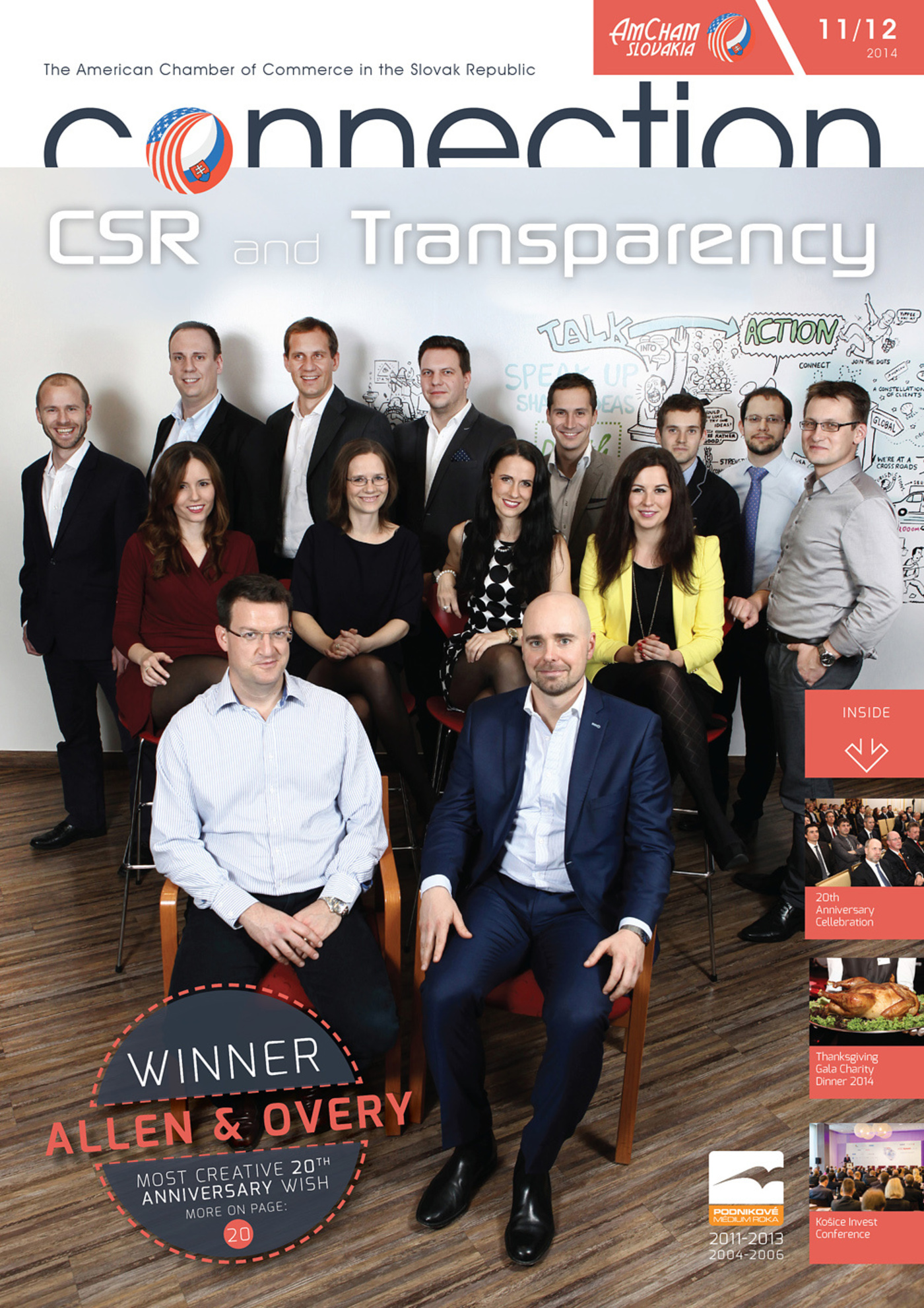Corrupt practices have taken many forms, from simple bribes to complex and well-developed procedures. Continuation of these activities relies in part on the fact that it is a complicated matter to accuse somebody of corruption, let alone to prove it.
Corruption in Slovakia
The EU has spent billions of euros attempting to suppress corruption. Despite this, citizens feel that bribery has spread in recent years, confirmed in a Eurobaro-meter survey, conclusions of which were published by the European Commission in February 2014.
On the basis of the survey results, Brussels has criticized Slovakia mainly for its limited judiciary independence, problematic areas of corruption prosecution and political funding, plus improprieties connected with public procurement and drawing EU funds. Slovakia disappointingly ranked the fifth most corrupt of 28 EU countries. It is striking that up to 90% of Slovaks consider corruption widespread and more than half of respondents feel that it has even increased over the last few years.
Bribery seems to be generally perceived as a major problem and not even severe penalties seem to discourage offenders. The punishment for accepting a bribe is two to five years of imprisonment; in more serious cases it is even seven to twelve years. The punishment for offering a bribe is three years of imprisonment; in more serious cases it ranges from four to ten years.
The prevalence of corruption or fraudulent practices appears no better in the business sphere. The following disturbing findings for Slovakia resulted from the EY survey on perceptions of corruption:1
- Fifty-six percent of Slovak respondents consider corruption widespread in their country (the global average is only 38%).
- Sixty-two percent of Slovak managers would use bribery/corrupt practices in order to win/retain business. At the same time, 22% of managers state that it is common practice to use bribery to win contracts.
- The Slovak Republic is among the top five countries globally, with high tolerance of excess expenses for representation and the provision of personal gifts or services in order to win orders.
- Only 18% of surveyed Slovak companies have whistleblowing hotlines; it is 96% in the USA.
- Sixty percent of respondents from Slovakia feel that non-ethical practices can be justified to meet financial targets.
- An anti-bribery and/or anti-corruption policy and code of conduct is implemented only in 64% of organizations. This is below the global (81%) as well as developed markets average (86%).
- Only one out of four respondents form Slovakia attended anti-bribery/anti-corruption training, which is below the global average (47%).
Is it possible to fight back?
In the private sector, it is necessary that a corporation implements and continuously tests anti-fraud mechanisms, thereby enabling management to capture signals of unethical, fraudulent or corrupt practices in a timely manner and react to them adequately.
In tandem with the setup of internal controls, employees should be regularly trained on issues related to fraudulent conduct risks. Generally, employees are the first to notice such undesirable conduct and therefore, it is important for founders, owners and management to enable its anonymous reporting. Introduction of an anonymous whistleblowing system is one of the most efficient anti-fraud mechanisms. It can help the organization in reacting quickly to mitigate the consequences of this harmful behaviour.
Employees must be informed about the implementation of a whistleblowing hotline. Simultaneously, a person must be designated with the responsibility to assess received information and investigate serious suspicions in line with the predefined procedures.
The implementation of a whistleblowing hotline was discussed by the National Council of the SR and this October the Whistleblowing Act was passed, taking effect from 1 January 2015. By law, a whistleblowing hotline must be implemented by employers with more than 50 employees and employers that are public authorities.
By law, employers are particularly obliged to:
- Disclose and make available instruments/methods of providing inputs, with at least one method accessible 24 hours a day
- Specify a separate organizational unit or person to evaluate inputs and investigate serious suspicions thoroughly
- Issue an internal regulation on input provision
- Accept and verify every input within 90 days from its receipt
- Keep records of inputs for a period of three years
- Ensure that the obligations above are met not later than by six months after the act comes into force
At the same time, the legislation above protects employees, who have reported a crime or other antisocial practice, against potential sanctions. The adopted legislation also amends other 18 related acts.
If any of the obligations are not fulfilled, an employer may face a fine imposed of up to EUR 20,000.
When implementing whistleblowing hotlines, management should realize their benefits as a source of gathering information on potential risks resulting from fraudulent and undesirable practices and moreover, not approach their implementation only formally and as a necessary evil, required by law. Various analyses of investigated cases of fraudulent conduct show that alerts triggered by employees regarding fraud represent the most common form of detecting these undesired and harmful practices.
____________
1 2014 Global Fraud Survey - Findings for Slovakia, published by EY in June 2014
Pavla Hladká, Senior Manager, Fraud Investigation and Dispute Services, EY



Follow us